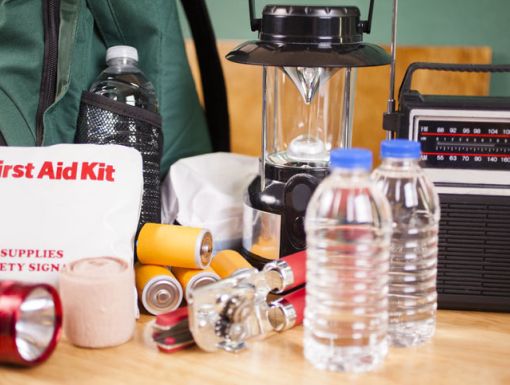
How Do I Stay Calm and Prepared During Hurricane Season?
During hurricane season, some of us may experience heightened anxiety levels about what the next few months may bring. But simply being aware of your anxiety levels can help you get a healthy perspective on the situation.
By managing your stress, staying calm and being prepared, you will, in turn, help your family to manage their own stress and remain calm. Children can be especially vulnerable to the moods of their parents. With that in mind, calm and supportive reactions regarding evacuations and crises can go a long way in alleviating the stress of your little ones.
Below are some helpful tips for reducing “natural disaster stress”:
- Keep it simple: The most important things to keep focused on in a natural disaster are your loved ones, food and shelter.
- Take a news break: Try not to constantly listen to the radio or watch TV. This can be overwhelming and anxiety-provoking, especially for young children.
- Have a plan: Children will feel prepared and relieved if they feel the adults in their lives have taken reasonable precautions to protect them from harm.
- Take care of yourself: Get as much sleep as possible, stay fueled up by eating small meals frequently, limit caffeine intake and avoid nicotine and alcohol.
- Don’t feed the frenzy: Try to limit thoughts about “what if” scenarios or conversations. Calm, supportive reactions from parents in anticipation of evacuations and crises will go a long way to alleviate stress responses in children.
- Try stress relief: Attempt to let go of your anxiety. Turn on soft music, watch a funny video or meditate.
- Ask for help when needed: Asking for help is important, as is offering to help others when you can.
- Don't isolate: It's easy to want to retreat when times are tough, but community is important during this time.
- Be patient: While it feels never-ending, there is an end in sight. Take it one day at a time.
Hurricane season can be a long five months. Residents may feel the effects of severe weather-related stress for weeks at a time, especially during and after a particularly devastating storm. The following reactions could occur:
- Emotional: Shock, fear, grief, anger, guilt, shame, hopelessness, numbness or emptiness.
- Cognitive: Confusion, disorientation, indecisiveness, worry, shortened attention span, difficulty concentrating, memory loss, unwanted memories or self-blame.
- Physical: Tension, fatigue, edginess, insomnia, racing heartbeat, nausea and change in appetite.
- Interpersonal: Distrust, conflict, withdrawal, work/school problems, irritability, loss of intimacy, overly controlling and feeling abandoned.
Many of these symptoms are completely normal but if they persist or negatively impact your personal and/or professional life, you should seek the help of a professional mental health provider.
Speak with a licensed therapist from the comfort of your home with Ochsner Anywhere Care virtual visits.
Ochsner Anywhere Care, Ochsner’s telehealth program, provides behavioral health and well-being virtual visits with licensed therapists seven days a week, 6 a.m.- 10 p.m. CST, from the comfort of your home. Users can connect with providers through a secure, interactive video via their smartphone, tablet or personal computer.
Remember that it’s important to take care of not only your physical health during hurricane season, but also your mental well-being. Stay safe this hurricane season!



